Sustainable solutions with Raspberry Pi: Local, zero-waste manufacturing and precious metal recovery
At Raspberry Pi, we have always aimed to make the best general-purpose computing platforms for every kind of application, at an affordable price point that’s accessible for as many people and businesses as possible. This effort extends far beyond the initial purchase price of our devices; it’s about creating products that are designed for longevity and supported by a supply chain that is both ethically and environmentally sound. That starts with where and how we manufacture our computers.
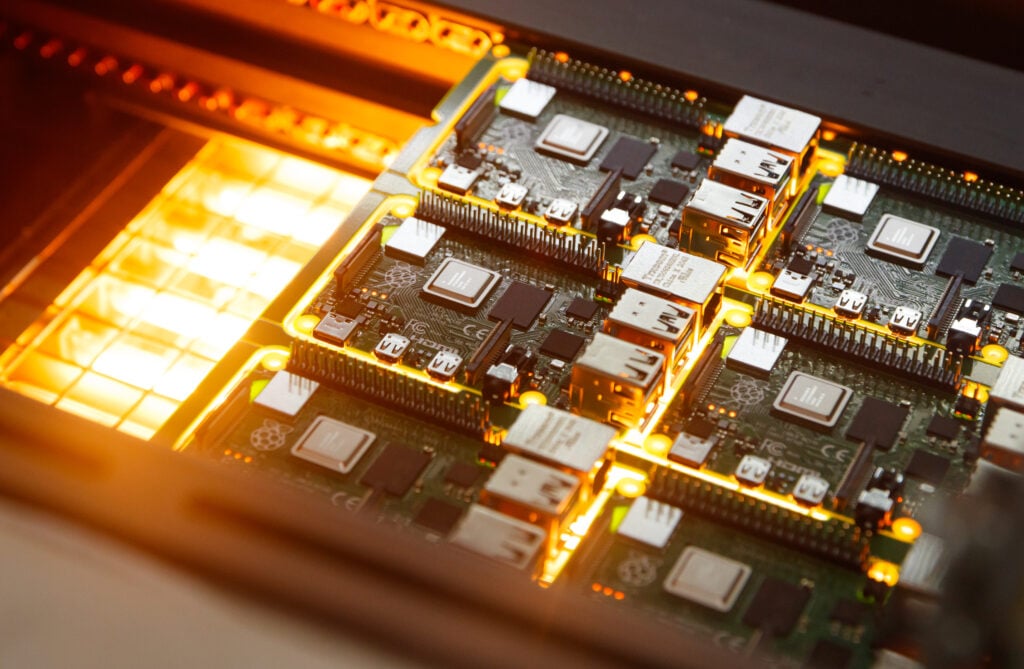
The power of local manufacturing
Since the beginning, we have manufactured our single-board computers at the Sony UK Technology Centre (Sony UK TEC) in Pencoed, South Wales. This local partnership gives us deeper insight into the entire manufacturing process, ensuring that our high standards for quality and ethics are upheld. It’s a choice that supports British jobs and industries — and it’s also a fundamentally sustainable one. By keeping production onshore, we can largely avoid the complex and energy-intensive global shipping processes that characterise much of the electronics manufacturing industry, significantly reducing our carbon footprint.
Zero waste and beyond
True sustainability goes beyond simple recycling; it requires constant improvement and circularity. The Sony UK TEC facility embodies this approach, operating under a zero-waste-to-landfill policy. This is achieved by managing waste streams across the entire factory, from recycling electronics and repurposing materials to composting food waste. During the COVID-19 pandemic, the site put this policy into practice by transforming waste from disposable PPE into new benches for its on-site environmental centre.
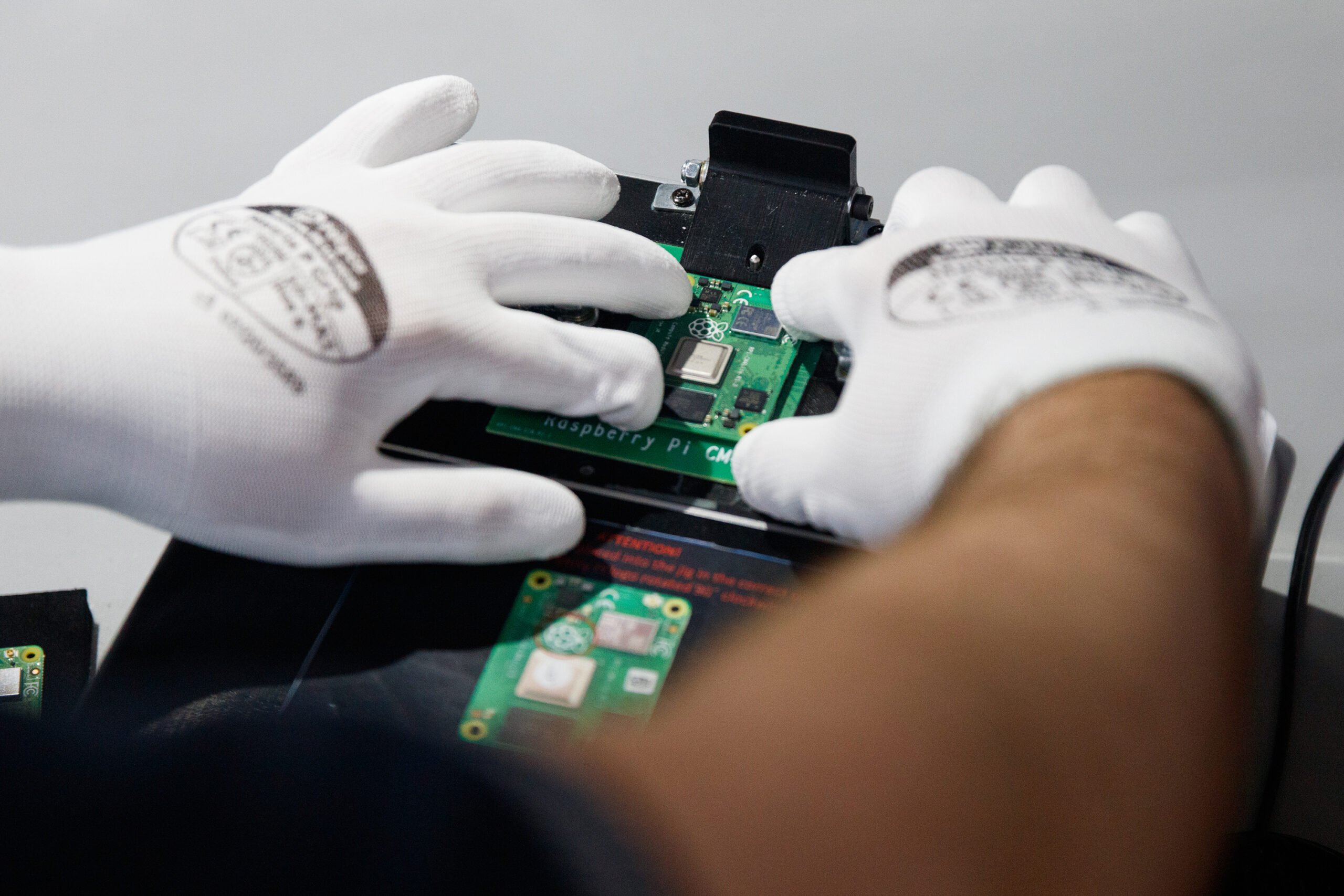
A mutually beneficial relationship with nature
In order to be truly sustainable, a manufacturing hub must become a part of its local ecosystem, rather than a drain on it. Sony’s Pencoed site, with its commitment to biodiversity and use of renewable energy, is a great example of this. The facility generates a portion of its own power using over 1700 on-site solar panels, with all its remaining electricity sourced from 100% renewable green energy. The site also actively promotes local biodiversity by maintaining honeybee colonies, which are cared for by trained staff volunteers. This not only supports the local ecosystem but also creates a tangible connection between Sony UK TEC’s industrial processes and the natural world around them.
Recovering gold from e-waste
Since 2022, Sony has supported the pioneering work of The Royal Mint, also based in Wales, to recover gold from discarded electronics. The Royal Mint’s new precious metals recovery plant uses a patented, room-temperature (more energy- and cost-efficient) chemical process to extract gold and other valuable materials from unwanted circuit boards, turning a typical electronic waste stream into a sustainable source of raw materials.
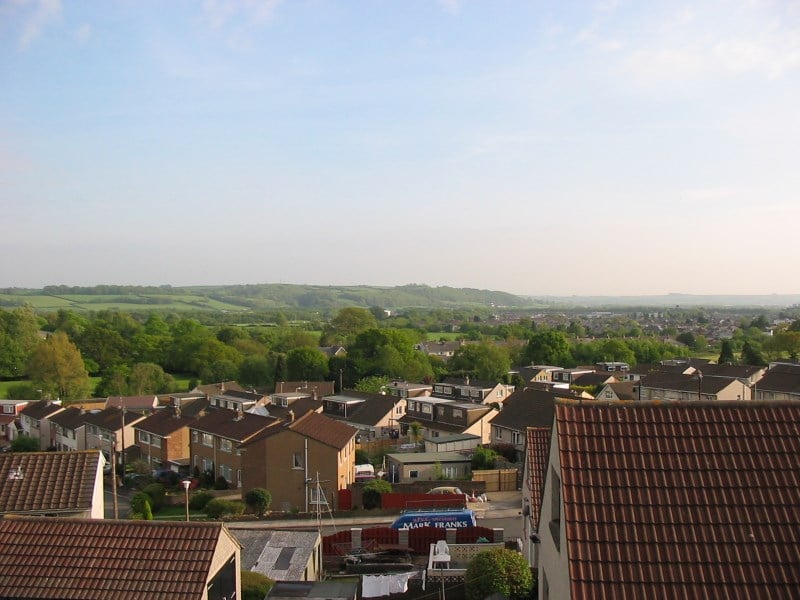
Sony has been supplying e-waste from its Pencoed site, just eight-and-a-half miles away from The Royal Mint, since the start of the programme. It says that the initiative “demonstrates the latest in recycling technology and is leading the way in reducing the environmental impacts from e-waste.”
“For Sony, sustainability is a key focus globally, so collaborations such as this one will become increasingly important to achieving our long-term sustainability goals,” the company adds. Sony values the collaboration with The Royal Mint as a continuing element of its Road to Zero environmental plan.
A commitment to sustainable innovation
Raspberry Pi believes that affordable computing should not come at an environmental cost. Our partnership with Sony UK TEC is a testament to our conviction that technology manufacturing can and must be done in a way that is local, responsible, and regenerative. Through these principles we can build a more sustainable future for everyone.

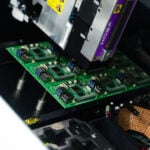
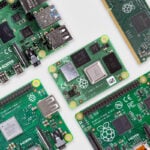
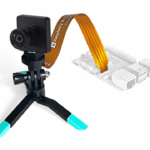

5 comments
Jump to the comment form
Helen McCall
A fascinating article. Will there ever be a returns system where old blown RPi boards could be returned for reclamation at The Royal Mint?
And I never guessed that you produce honey! Do you market it as Honey Pi?
Tim Cliffe
An interesting article and a practice many would do well to emulate; real sustainability practice rather than box ticking.
Honey Pi could be the name of the next major RP board development, perhaps with a hexagonal Raspberry Pi logo?
Andrew S
Rasp-bee-rry Pi? ;-)
Anders
Another reason why I’ve made the right choice to make Raspberry Pi my primary computing platform.
Owen Rubel
What board is that that you are connecting pis to?